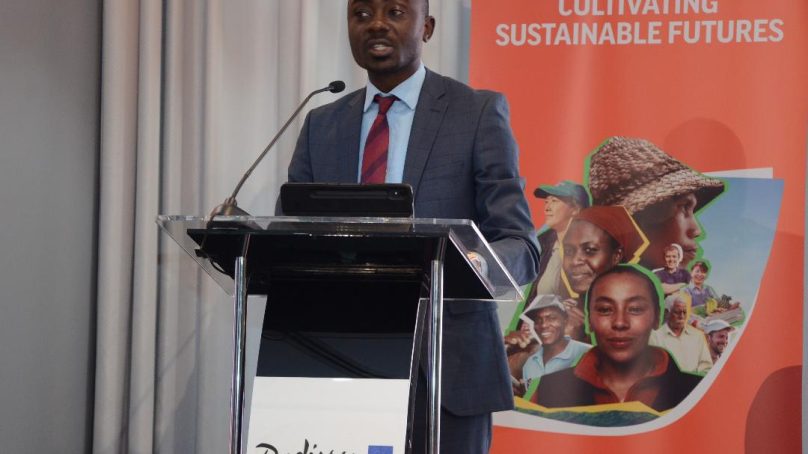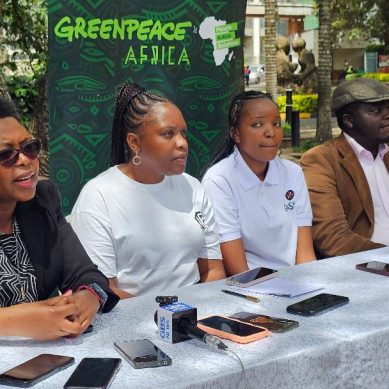
Kenya’s vulnerability to climate change poses a challenge to the resource-intensive nature of the horticultural processing industry.
Additionally, small-scale farmers face challenges of input supply, capacity, compliance with regulatory and market requirements, limited access to finance, lack of market access, market information and rising stiff competition.
Speaking during a recent stakeholder workshop for the New Export Trade (NExT) Kenya Programme, Principal Secretary in State Department for Agriculture Kipronoh Ronoh said that, despite the horticulture sector being one of the fastest-growing subsectors in the country, there is a need to address market access, sanitary and phytosanitary requirements and the need for infrastructure improvements.
The New Export Trade (NExT) Kenya Programme (Enhancing Kenya Horticulture Exports), which has been running for the past five years, the principal secretary, said has made significant strides towards Kenya’s horticulture sector transformation.
“The programme has strengthened the capacity of agribusinesses and horticulture business membership organisations to compete in the regional and global arena, the horticulture environment has been enhanced and there was Identification of bottlenecks affecting the competitiveness of Kenyan horticulture export products,” the PS noted in a speech read on his behalf by Duke Mainga, chairperson Commodities Fund of Kenya.
Dr Ronoh said that, with the successes of NExT Kenya programme, he was happy that the challenges in the horticulture sub-sector, and agriculture generally are being addressed through the National Horticulture Standing Committee, an initiative of the government and the private sector.
The foundation built by many development initiatives including the NExT Kenya programme, puts Kenya at a vantage point to deal with the bottlenecks through implementing coordinated and cohesive actions, added Dr Ronoh.
The Committee Linking Entrepreneurship-Agriculture-Development (COLEAD) programme Coordinator Chagema Kedera said the NeXT programme, which was about enhancing horticulture exports from Kenya was funded by the European Union with €5 million.
“We started in April 2020 and it is now coming to a close. The first result area we looked at was at the competitiveness of agribusinesses. What an employer can do to make sure that value chains are competitive. The second result was looking at the enabling environment, that means working with the competent authorities to improve their systems to deliver the services to the agribusinesses and the third area was looking at the bottlenecks that are within the value chains of horticulture,” Dr Kedera explained.
Kedera said they actually found 122 bottlenecks and that they have been looked at by the National Horticulture Standing Committee and the consideration is that they inform the development of the horticulture master plan that will guide the future developments within the industry.
Over the past five years, he added, the programme has made remarkable strides in improving the competitiveness of Kenya’s horticultural exports.
“COLEAD has worked closely with over 182 beneficiaries, including small and medium-sized enterprises (SMEs), service providers, government institutions and trade associations to strengthen their capacity to meet the stringent sanitary and phytosanitary standards set by key export markets, particularly the European Union,” he said.
Kedera observed that the efforts are now being directed to developing a systems approach through which there will be continuous guarantee of our exports, adding that the system has actually defined what every producer of roses has to do from planting to export and this will really address the issues.
Okisegere Ojepat from the Fresh Produce Consortium of Kenya (FPEAK) said they will review the regulations, educate their members and also the public on what the regulation means and what they need to do to be able to achieve their optimum.
Ojepat said, “We are looking at ease of doing business and lobbying government to support and ensuring that we have lesser constraints since at the moment, we are more over-regulated, we have so many moving parts such as the levies and we are proposing as standing committee that the government has one agency that collect fees from us.”
He said enhancing of the horticulture products will be about growing the target that will be to gradually double export in the next 10 years across various products.
“Doubling is moving from the current Ksh156 billion ($1.21 billion) and trying to see if we can get that into Ksh300 billion within 10 years, and we will be doing an assessment at least every quarter, giving an update and looking at it annually,” Ojepat said.
This will be achieved through planning market, managing regulation and managing ourselves in terms of how we do our business.
Horticulture is a major foreign exchange earner, often referred to as “green gold” alongside tourism, coffee and tea. It contributes significantly to Kenya’s GDP, with the agricultural sector as a whole accounting for a substantial portion.
While a significant portion of horticultural produce is consumed locally, a considerable amount is exported, with fresh cut flowers, French beans, runner beans, and other fruits and vegetables being major export items.
In 2023, Kenya earned roughly Ksh156.69 billion ($1.21 billion) Kenyan from export of fresh horticultural products.
- A Tell Media / KNA report Wangari Ndirangu
Duke Mainga, chairperson commodities fund of Kenya who read speech on behalf the Agriculture Principal Secretary Dr Kiprono Ronoh during the closing workshop on New Export Trade (NExT).
Various horticultural crops, the NExT programme has for the last 5 years been working on enhancing horticultural exports in Kenya.
Group Photo of stakeholders involved in the 5 year NExT programme.







